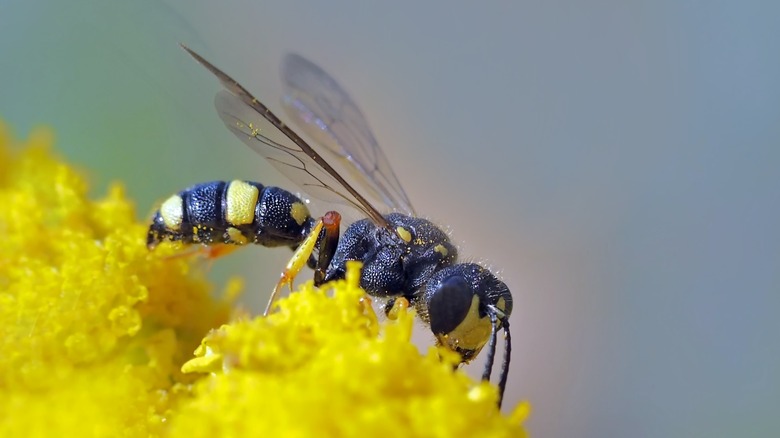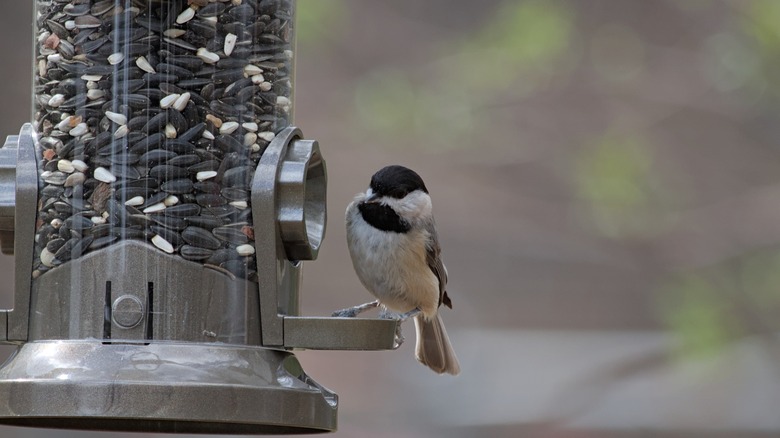The Wasp-Killing Bird You Should Attract For Easy Pest Control
While wasps are an important part of ecosystems, they can also be a major pest thanks to the aggressive behaviors and nasty stings that some species are notorious for. You don't have to immediately reach for insecticides and sprays if you start noticing wasps in your yard though. Instead, consider attracting a common bird that feasts on the small insects. One of the best is the chickadee, making them a bird you will definitely want in your yard.
There are several different species of chickadees (Poecile spp.), but many are so similar and closely related that they are often difficult to distinguish from each other and can even hybridize. Different chickadee species have similar diets and they all adore eating insects, including wasps. So whether you live in the northern United States where black-capped chickadees are common, the West Coast, where the chestnut backed chickadees live, or the southeastern US, where Carolina chickadees thrive, there's likely a wasp-eating chickadee near you.
Attracting chickadees to your yard
While there is most likely a species of chickadee near you if you live in the United States, they may not be visiting your yard yet. Luckily, you can change that by making the landscape just a bit more appealing to the little birds. While about 70 percent of a chickadee's diet comes from animals like wasps and other insects, they also enjoy eating nuts and seeds and happily flock to backyard bird feeders, especially during winter months. While there are many styles of backyard feeders, tube feeders and suet feeders are both good options for chickadees. It's not just year-round food sources that can help attract this common bird though. Water is also important for encouraging birds, including chickadees, to enjoy your yard. You can use anything from a massive wildlife pond to a simple bird bath. Just remember to keep your birdbath clean so it doesn't become a vector for disease or mosquitoes.
To encourage chickadees to spend even more time on your property, you may want to construct a nesting site for them. Chickadees naturally nest in the cavities of old trees, but they will also use nest tubes and nest boxes which you can put up in your yard. Large native trees and shrubs are also helpful for encouraging chickadees to visit, and studies have shown that growing at least 70 percent native plants can massively improve survival rates for native bird species including chickadees.

